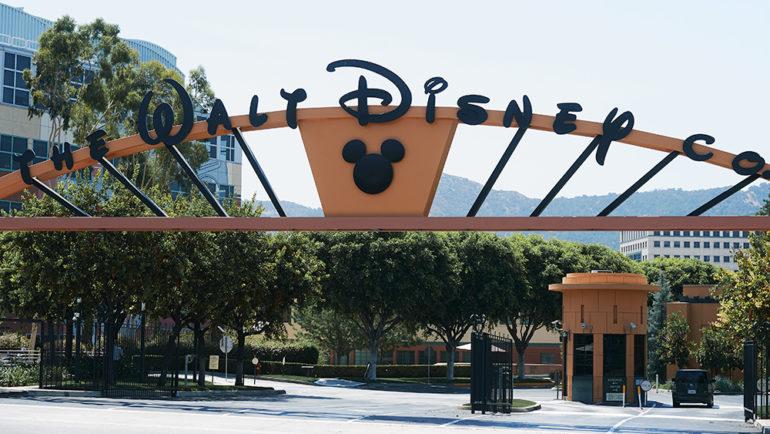Disney Purchase of Fox Ushers in Age of Media Giants (Analysis)
By Brent Lang
LOS ANGELES (Variety.com) – We have an entered an age of media giants.
This new era began this week after Walt Disney Company wrapped up its $71.3 billion acquisition of much of 21st Century Fox’s film and television holdings. The deal gives the company ownership of NatGeo, FX, Searchlight, Twentieth Century Fox, and much of Hulu. It’s left all of ’s competitors gravely concerned about a new Hollywood order given that the entertainment giant now controls hit film franchises from “Avatar” to “X-Men;” a cornucopia of popular cable brands; and, oh, 40% of the box office.
Sony Pictures chief and former Fox studio head Tom Rothman was blunt when he spoke to Variety for an appreciation piece on the legacy of Twentieth. “I think it’s bad for consumers and anti-competitive — deeply anti-competitive,” he said. “And consumers will ultimately suffer. What I think the loss to consumers is, is a tremendous loss of originality. That’s the greatest threat the movie business faces.”
By acquiring Fox, Disney is getting bigger as much of the entertainment business seems to be constricting and as the axis of power in media shifts away from Hollywood towards Silicon Valley, where digital players such as Netflix are upending traditional ways of making money. Disney believes that owning the hottest brands in film and television can help it thrive in a future that will be dominated by streaming services. It’s one in which movie ticket sales, cable retransmission fees, and broadcast advertising will represent increasingly marginal sources of a media company’s revenues.
To Disney’s credit, it recognizes that fact. Bob Iger, the company’s head, has made the launch of its streaming services its top priority. The hope is that Fox franchises will complement Disney’s suite of brands, a collection that includes Marvel, LucasFilm, and Pixar, and provide enough IP firepower to maim Netflix and stall its rise. But Disney won’t just have to contend with Netflix. Apple is gearing up an original content arm and WarnerMedia and Comcast are launching their own streaming services. The cable bundle may be fraying, however, it’s unclear how many different streaming services consumers will pay for to replace their Time Warner subscriptions of yore. Media companies often talk about streaming revenues as additive, but they are really just an attempt to plug a hole being left by declining theatrical, home entertainment and cable businesses.
Will the Fox purchase help Disney not only preserve its business, but grow it? Who knows. As Iger argued in his note to staff, integrating these sprawling media companies will be the hard part. “What lies ahead is the challenging work of uniting our businesses to create a dynamic, global entertainment company with the content, the platforms, and the reach to deliver industry-defining experiences that will engage consumers around the world for generations to come,” he wrote.
Hollywood is changing. Old business models are dying off. New ones are emerging with stunning rapidity. It’s an era that calls for innovation and bold experimentation. When companies get to be a certain size there are layers upon layers of bureaucracy that can stifle employees’ abilities to take risks and push their businesses in new directions. Staying nimble while growing bigger is the challenge Iger and company now face.
Right now, Disney, WarnerMedia, Comcast and others are responding to the disruption around them by bulking up and barreling into the world of streaming. To survive this digital age, they will simultaneously need to anticipate or, perhaps, even inspire the next wave of disruption.
That creates an opportunity for smaller players who may be looking at this coming era of behemoths and bracing themselves for an uncertain future, one that has left them punching up. In the short term, it will be harder for them to get prime release dates for their films or extract the best ad rates from Madison Avenue. But they will also be able to sell their content at a premium to these new streaming players who are looking for movies and shows to add to their services. At the same time, they won’t be saddled with the cost of launching a new service or integrating a sprawling, multi-national workforce. And they won’t be overly reliant on a few key franchises. Superhero films and “Star Wars” sequels remain wildly profitable, but new genres will inevitably gain in popularity.
For those companies that continue to operate in Disney’s shadow, the challenge will be to more strongly define their own brand. They can’t exist as just Disney knockoffs. But there has to be room in this uncertain age for other entertainment players, even ones who bank on the original films and series that Rothman bemoaned were being threatened with extinction.
These Disney rivals may even find out that at a time when entertainment conglomerates keep buying things and expanding their empires, a case could be made for survival of the slimmest.

